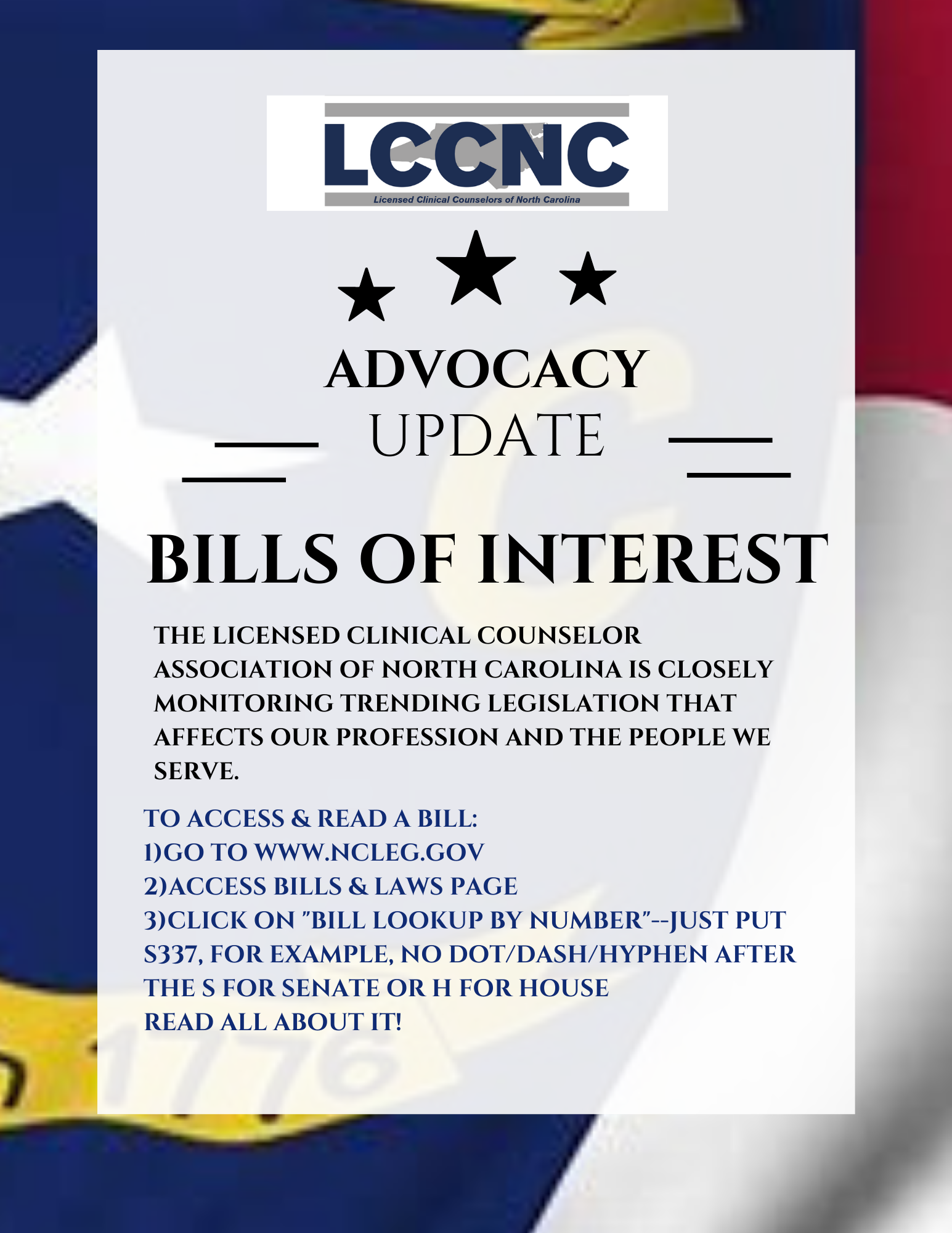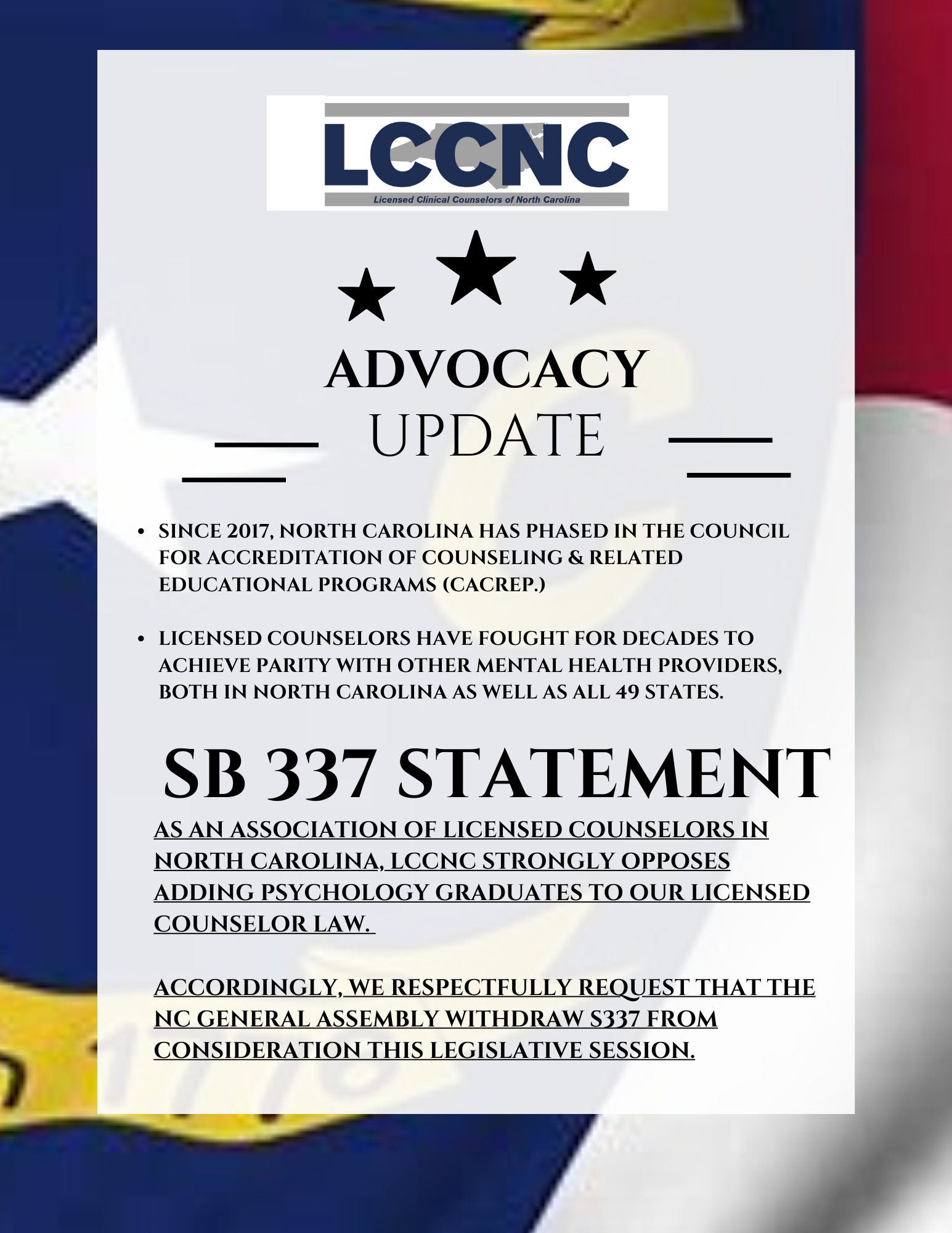What is Advocacy
LCCNC's 25 years of Advocacy SuccessA Major Difference in North Carolina's Clinical Mental Health Counseling Profession.
What is an Advocate
An advocate is someone who argues a cause, supports, or defends something in which they believe. Most counselors, during their time in graduate counselor education programs, rarely focus on discussions related to the advocacy on behalf of the counseling profession.Professional counselor advocacy involves taking action to promote one’s own profession with an emphasis on removing or minimizing barriers to counselors' abilities to provide services. For our profession of clinical mental health counseling, advocacy helps educate legislators and policy makers, ensures oversight regarding regulatory matters, and helps to protect our scope of practice.
Advocacy activities serve to expand counselors' presence at the community, state, and national levels. Counselors should not underestimate the importance of supporting the growth of the profession through actions taken in their local communities.
Advocacy for clinical mental health counseling is a form of career “insurance” as it not only promotes counseling as a profession; but, also helps advance clinical mental health counseling as a whole. Increasing public awareness of our highly trained profession provides the public with the knowledge of a credible and skilled mental health resource available to them. Advocacy improves our own professional sense of efficacy and promotes positive perceptions of ourselves as capable clinicians, educators, licensed providers, researchers, and helpers of our clients.
Ways to Advocate
Issue advocacy is promoting a particular position on a given issue backed by an interest group as opposed to a candidate. Legislative advocacy is supporting or discouraging the passage of legislation through various methods and procedures. Lobbying legislators is the most commonly known type of legislative advocacy.

To access & read a bill:
1) Go to www.ncleg.gov
2) Access Bills & Laws page
3) Click on "Bill lookup by number"--just put S337, for example, no dot/dash/hyphen after the S for Senate or H for House
Read all about it!

